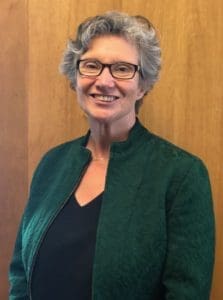 By Linda Jackson
By Linda Jackson
AAI Program Director
This month, AAI partnered with the League of Women Voters to hold three candidate forums focused on issues affecting older people in our communities. We heard 25 candidates from Sausalito, Belvedere, San Anselmo, Fairfax, and San Rafael make their case for the votes of their constituents.
I had two ageism moments watching the forums. First, what is it with people who say “my dad is 86” (or 93, or pick another age)? This reveal is followed by the claim, “So … I know about the issues facing seniors.”
My mother lived to be 83, active to the end, and died of a heart attack. My uncle lived to 91, also active, and died from a fall while walking. My aunt died from cancer, and my dad lived with Parkinsons and Alzheimers. They were all individuals, with the huge variety of life experiences that shaped their physical and mental health, their careers and retirement, their choices, and their wisdom that I treasured.
I’m reminded of what a high school counselor once told me: “If you know one teenager, you know….one teenager.” Perhaps this is what black people feel like when yet another white person thinks that having black friends means they have a clue.
No no no. Having black co-workers, or a teenager, or an older relative, does not mean that someone will understand the universe of human experiences of people living the three generations between 50 and 100+. People with an older parent cannot rightly understand the systems that conspire against all other older adults, especially those who are Black, or immigrant, or low income, or diabled. And knowing one older person is not going to give anyone the knowledge and inspiration to make the changes we need to end the ageism that creates the isolation and poverty so many older people face.
This is where being aware of ageism helps. Someone who hasn’t crossed that threshold to being ‘older’ cannot understand the freedom and joy, the fears and sadness, the happiness and wisdom, the energy and aches that come with being 60 plus. The way to understand someone is simple: listen to their stories. In fact, listening matters more than ever for older people, because with ageism, there is, wrongly, an assumption that all older people are alike.
There was one more phrase that struck me from the candidates forums.
What is it with people who say “I’m 58, so I’m not old yet”?
Actually, you are!! In fact, from the other side of the ‘older’ door, I now appreciate AARP’s inclusion of people over 50 so they can get ready for their older years, which deserve to be comfortable and filled with contentment. The deal is, I’m guilty of thinking my relatives informed me about the challenges facing “older people,” and of denying the fact that I’m getting older. In AAI, I’ve learned how to understand my own ageism. Our work includes everyone who thinks “I’m not there yet.” Because we know they need us.
Let’s give extra points to the candidate who proudly said “I’m 68.” Let’s start giving points to each other for being Boomer Proud or Old & Bold. And to those candidates who shrink away from honoring their years of experience, I say that we need elected leaders who are not afraid of their wisdom and insights into the vagaries of a life’s journey.
Ageism is based on fear and a lack of understanding. So it’s time for us to start casting our votes for the people who have listened to us and who support solutions for older people wanting to work, volunteer, live in an affordable apartment or age-in-community, have health care that meets their needs, or enjoy the warmth of companionship and care.
Vote!
Ask your clients if they need help to vote. Does the senior living facility where you work or visit need help with assisting residents with voting? Be a poll worker, and offer your staff time off to do this. Ask your supervisor for time off to work the polls. Because so many oIder people who have done this for years are not able to leave their homes this year, it is up to younger people to step up.
Stand up. Stand strong.
-Linda

